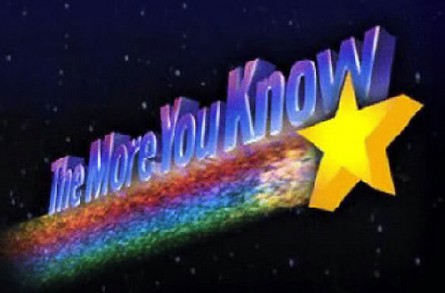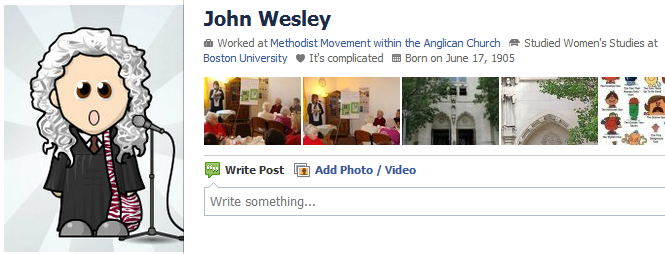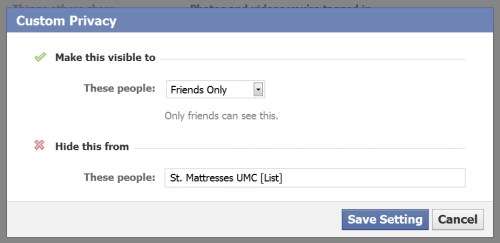 Last year about this time, I wrote “Facebook How-To for Pastors Changing Churches“…and it generated a lot of conversation. Some pastors didn’t want to give up contacts with parishioners, others appreciated a helpful way to slowly detach from parishes without hurt feelings, and some laity appreciated pastoral boundaries that helped churches through transitions. At the time, it was all theoretical for me as I wasn’t changing parishes.
Last year about this time, I wrote “Facebook How-To for Pastors Changing Churches“…and it generated a lot of conversation. Some pastors didn’t want to give up contacts with parishioners, others appreciated a helpful way to slowly detach from parishes without hurt feelings, and some laity appreciated pastoral boundaries that helped churches through transitions. At the time, it was all theoretical for me as I wasn’t changing parishes.
This year? I’m changing churches. Changing entire regions, actually. So now I have a chance to see if I will practice what I preach.
Reflection on Why This is Important
When I mentioned this on Facebook, I was clued into Keith Anderson’s writeup on this topic here: “Should Pastors Remain Facebook Friends with Former Parishioners?” I resonated with some of it. But the crux of his argument against cutting ties is here:
Am I “friends” with my parishioners solely because I am their pastor? No. That may be why we met, but its not why we’re friends. We have common experiences, shared interests, faith, and a personal history. We have rejoiced and mourned together. We genuinely care about one another. More, we are part of the Body of Christ. Not just the Body of Christ in our congregation but in the larger Church
In this understanding, the Body of Christ is the connectional glue between pastor and parishioner, not the parish where they met. By changing churches, the pastor and parishioner continue to participate in the Body but in a new form. I agree with this theologically. But ecclesiologically, or thinking about the church, it doesn’t work for me as that’s not how polity is formed in the church. Pastor Anderson alludes to this with this line:
The misbehavior of a relatively small number of people should not be the cause for not being friends or Facebook friends with parishioners. We are adults and we can set appropriate boundaries.
That’s incorrect in practice, especially in connectional churches who set policy to protect the many from the actions of the few.
- We have Safe Sanctuaries because of a small number of people who have violated relationships with children.
- We have rules about pastors returning to their former parishes because of a small number of meddling pastors.
- We have independent audits of the church finances because of a small number of embezzlers.
- We now require windows on pastoral offices because a small number of pastors had indiscretions with parishioners.
Likewise, it is not unreasonable to come up with reasonable expectations of how to handle Social Media…because of the failings of a few. So a guide is helpful and relevant to discern which situation you might be in and which social media approach might work best.
So, based on your situation, here’s three approaches for Facebook (and it can be applied to other social networks too in some forms). I previously blogged about this in “Having Multiple Identities is an Example of a Lack of Integrity“…but here’s the updated version after another year of practice and reflection. And for those who read the last years’ article, the Pro section has the most updated info for 2012.
NOTE: all steps are assuming you are interfacing with Facebook on a desktop/laptop. I do not have instructions for iPhone/iPad/mobile as the interfaces are different and often the options I’m using are missing.===============
Novice: Delete all your former church relationships.
- The simplest way is to delete all the church and community friends on your Facebook account. This means they are not part of your life anymore and you change churches without any further attachments. Done and done. Feelings may be hurt but it’s the cleanest break.
- Why you would go this way:
- If you are in a church that a clean break is best
- If you have parishioners that are repeat violators of boundaries
- If you know that you yourself need to not be in relationship with your parish.
- Additionally, it is best if you do this for EVERYONE…not deleting almost everyone and then keeping tabs on “that great family” or “that youth that will be famous someday.” Otherwise, you can be accused of intentionally maintaining relationships.
Beginner: Start a Professional persona account
- Some pastors have taken to having a “real persona” and a “church persona”: ie. two facebook accounts, one for their family and friends (Jeremy), and one for their “professional” life (Pastor Jeremy). While I think it neglects to use Facebook to its full advantage (see below option), it does make a break between churches easy.
- If you have two accounts already, then wipe the friends list of the Pastoral account and start anew, only friending your new parish. This maintains the boundary pretty cleanly.
- If you don’t have two accounts, start another account (Pastor Jeremy) and begin friending your new parishioners there.You can then cease to check the former account or check it infrequently. If you set your email notifications correctly, you could get notes whenever they write on your wall or direct message you, but otherwise you cut off communication with them.
- Why you would want to go this way:
- If you are okay with two accounts and recognize personal/professional boundaries well.
- If your parishioners are okay with one-way communication with you after you leave the pastorate.
- If your following pastor is okay with the arrangement.
- Please note, however, that two accounts is a violation of Facebook’s Terms of Service. They will likely never bother you but it is technically against the rules.
Pro: Set Friends List Privacy & Newsfeed Visibility
- This is the most advanced of the Facebook options. It is also the most effective, in my opinion. Master and understand this and you are a Facebook wizard, Harry. It is a three stage process and you must do all of it.
- First, create your friends list.
- Click “Edit your friends” here.
- Hover over a name, hover over the “FRIENDS” button, and select “see all lists”
- Scroll to the bottom and click on “+ New List” and name it your former church.
- Add your parishioners to that list.
- Second, assign privacy restrictions.
- Click on “Privacy Settings” here.
- Click on CUSTOMIZE on the left side.
- Now under each item that you want to hide, click the lock button and select “customize”. Set to friends only “except” and type in the friends list you made earlier (it should auto-fill). click SAVE SETTING. The header graphic on this post shows this step.
- This is tedious but do this for each item you want to hide.
- Third, remove former parishioners from your Timeline (NEW in 2012)
- Click on former parishioners profile (or mouse-hover over it, if you are not on a tablet/mobile)
- Hover on the “Friends” button (to the right of their profile picture and name)
- On the pop-up list, deselect (uncheck) the item “Show in newsfeed”
- Now, as a result, your former parishioners can see your profile INFO tab…but can’t see your wall or photos. In other words, they can still contact you and see where you are in the far future, but they aren’t a part of your day-to-day life. Plus, they are removed from your timeline and you will not be tempted to remain in relationship with them. You can still type in their name and view their wall if you hear about something or just want to be nosy, but they are not part of your dynamic lifestyle.
- Why you would want to go this way:
- If your congregation is full of internet natives or high-functioning immigrants who understand social media well.
- If your following pastor is okay with you maintaining contact but not relationship with former parishioners.
- If you are able to refrain from commenting on their life events or looking them up.
Advanced tips/techniques for Pastors
Here’s a few quick tips for pastors that will help them manage digital transitions.
- Allow the “Subscribe” button to be put on your Facebook and let parishioners know that you are removing them as active friends but that they can “subscribe” to your public posts by clicking on the button. Give them the link to your Facebook so they can do that.
- Create a page. I have a Facebook page for my blog and I use that to point people to. That way, they can follow it and control how much they want to interact with it, not me. This divides the personal/professional easily for me.
- Suggest the new pastor to parishioners to be “friended.” You can “suggest friends” to your friends in a mass way by clicking on their “friend” button on the new pastor’s account and clicking “suggest friends.” Then you can unfriend or change friendship levels while knowing they are in digital communication with the new person.
- When in doubt, unfriend them. If you are unsure if they can handle the transition or if you can handle it, unfriend them. It might be painful for them when they realize it, but it hurts less in the long run. This is underlined because it is really important.
- Give VETO power to the following pastor. If you ARE doing the Pro Option, let them know. If they are not comfortable with it (given a reasonable amount of time and digital exposure) then you have to be okay to go nuclear and unfriend them. You have to respect the following pastor’s ministry, and it is in the best interest of the congregation to do whatever is best. You are an apologetic for a connectional system, and should do the same in honorable ways in the digital milieu.
Summary
So, in summary, there’s three different methods to deal with the former parish members who are your facebook friends:
- Remove them completely from your life (Novice)
- Add them to a church-specific user account that you disconnect from (Beginner)
- Create a friends list with custom privacy controls so the former parish is still aware of your static details (Info tab) but not your dynamic actions (wall) and you are not involved in their lives (removal from timeline). (Pro)
- Finally, there’s some tips up there about changing parish “best practices” that might be helpful.
For me? Will I practice what I preach?
- I had 72 people that I was friends with on Facebook that were connected to my former community. I’ve removed over half of them (per them being townspeople or parishioners that I didn’t feel a continuing relationship was good for one/both of us), and relegated the other half to the Pro level (can’t see my wall [they couldn’t see it anyways], and I don’t see them on the Timeline). I’ve got a list soon-to-be-submitted to the following pastor with those people’s names, and if they have a problem with it, then I’ll remove those relationships as well.
- This satisfies both my ethic to no-contact, while also being able to maintain relationship as the Body of Christ. And I know myself and know that I can do that without breaking boundaries.
- This also parallels the real world. When you move, parishioners can send you mail or contact you, and you never have to respond. They can read about your exploits in the church newsletter or online media, and you don’t have to give them permission. The Pro level, properly used, mimics a healthy offline relationship so long as all parties recognize how it ought to be used and credence given to the
Thoughts?
Any other solutions that pastors can take advantage of?
Any other perceptions from laity as far as digital interactions go?
Thanks for reading and feel free to forward this to your pastor or friends that are transitioning parishes for their education.






Did you do a 2013 version of this? This is so incredibly helpful. Not that I’m getting prematurely prepared or anything…
Nevermind. Found it!
Your way of telling all inn this article is in fact good, alll
cann without difficulty know it, Thanks a lot.